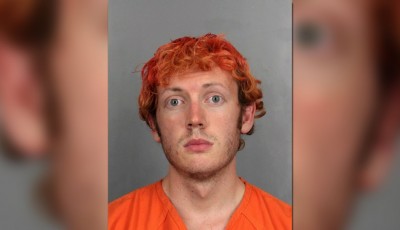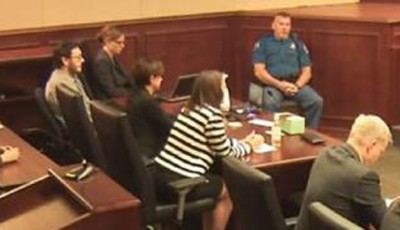Death Penalty Still on Table in CO Shooting Trial
The jury’s quick deliberation and verdict meant they rejected the defense’s argument that the mitigation evidence outweighed the four aggravating factors proven during the first phase of sentencing.
The trial now moves to phase three, where both sides will make a final plea for or against executing Holmes.
The same jury last month convicted Holmes of killing 12 people and injuring 70 in the July 2012 attack at a suburban Denver movie theatre.
A court spokesman said the decision would be announced at 12:30 p.m. MDT.
Starting tomorrow, the jurors in his trial are expected to hear from the loved ones of the twelve people he murdered in the attack. Although his family spoke about Holmes’ childhood and asked the jurors to spare their son’s life, the panel ultimately decided the aggravating factors of the shooting were sufficient to possibly warrant capital punishment, leaving the death penalty on the table. Jurors can expect to hear more emotional testimony from shooting victims about how the crime has impacted their lives. Had even one broken ranks yesterday then the worst that Holmes would have faced would have be life in prison without the possibility of parole.
The mother of Jessica Ghawi (GOW’-ee), an aspiring sports broadcaster killed by Holmes, said she was feeling a little overwhelmed about taking the stand. But Sandy Phillips said it’s her job to share her daughter’s story and vowed to do the best she could.
Jurors agreed and said the crime was so heinous that the death penalty could be appropriate.
In Monday’s preliminary verdict, jurors found simply that Holmes’ mental problems and the portrait his attorneys painted of a kinder, gentler younger man did not outweigh the horrors of his calculated attack on defenseless moviegoers. Holmes’ attorneys urged the jury to give Holmes a life sentence and end the months-long trial. All they need is one holdout… “Schizophrenia chose him. He didn’t choose it”.
Other witnesses described James Holmes as a happy, friendly child.
Holmes was a promising student working toward his PhD in neuroscience at the University of Colorado before illness overtook his mind, his legal team claimed. He wrote that he had tried to fix his brain but failed.












